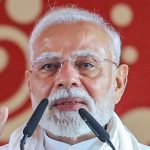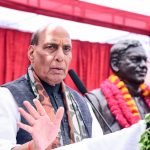The Pakistani Army is fighting tooth and nail to push its false narrative that it emerged victorious in the recent military confrontation with India. The arch-rival India became the first country to strike 11 airbases of a nuclear-armed nation in a single operation. But despite this fact, Pakistani generals are confident that they will be successful in selling this lie to the common Pakistani, as their core competency is deceiving.
This incident is not an isolated case of Pakistan’s deception to hide the facts. It is merely the latest chapter in Pakistan’s long history of manufacturing falsehoods to cover up its failures. The Pakistani military and intelligence apparatus have repeatedly misled their citizens, downplaying defeats, disowning their soldiers, and manipulating media to project a façade of strength and control.
The Pakistani establishment’s reliance on propaganda and deception is not just a strategy; it is a fundamental characteristic of its governance. Let’s have a look at some important lies and false propaganda spread in Pakistani society by the Army.
Presence on Siachin
This myth that the Pakistani army is present in the Siachen glacier and is eyeball to eyeball with Indian forces is widely believed by Pakistanis. The fact is that the glacier, which is regarded as the highest battlefield in the world, has been under the total control of the Indian army since 1984.
Pakistanis are behind the Soltoro Ridge, much below the heights of the Siachin, and the glacier itself cannot be seen, even from forward Pakistani positions. Ironically, Pakistan has been publicly saying over the last few years that it is open for talks on mutual withdrawal from Siachin. It’s hard to understand as it challenges common sense that how you can withdraw from a position where you are not present.
Victory in the 1965 War
Pakistan celebrates September 6 as “National Defence Day” to commemorate the sacrifices made by its soldiers in defending Lahore from advancing Indian troops. September 6, 1965, marks the day when Indian troops crossed the international border to launch an attack on Pakistani Punjab. In fact, this war was initiated by Pakistan by launching Operation Gibraltar as the first phase, in which Pakistan’s Special Forces infiltrated the Indian side of Kashmir, in the second phase, whose code name was Operation Grand Slam, Pakistanis aimed to attack the vital Akhnur Bridge in Indian side of Jammu and Kashmir.
Pakistani generals mistakenly assumed that this route is a lifeline for India, as it’s the only supply route for Indian forces in the Kashmir valley. This was not the case at all, as India’s supply route to Kashmir did not pass through Akhnur. (The National Highway 1A passed through Udhampur and Ramban, not Akhnur.)
In this war, no pre-determined objectives were achieved by the Pakistanis, and if we look at each other’s territory held by both sides, Pakistan was at a loss there, too. India had captured around 1920 square kilometres of Pakistani territory, whereas Pakistan could capture only 550 square kilometres. But Pakistan deluded its public permanently by declaring 6th September as its Defence Day, and celebrated with a great amount of pomp and show every year.
Downplaying Baloch Movement
For decades, the Pakistani establishment has termed the Baloch insurgency as a low-intensity conflict confined mostly to the countryside of Balochistan. Islamabad always rejected the conflict in Balochistan as a mere law and order problem created by some tribal Baloch sardars, who want more funds from the federal government.
But the reality is that the Baloch struggle is the longest-running full-fledged insurgency of South Asia, which aims to create an Independent Balochistan. The occupied Balochistan, despite being the most resource-rich part of the country, remains under military control, facing human rights abuses and a media blackout. Despite its strategic importance, Balochistan’s local population is marginalized, fuelling anger among the masses.
1971 Defeat was Due to Political Failure
Just days before his retirement on November 29, 2022, General Qamar Javed Bajwa termed the East Pakistan debacle of 1971 a “political failure,” and complained that the sacrifices of the armed forces were never properly acknowledged. GHQ has always made the common Pakistani people believe that the 1971 disaster was a political failure, and the military was not involved in any disastrous decisions of that war.
In reality, all the decisions leading to and during the war were solely taken by the military dictatorship headed by General Yahya Khan. The root cause of Pakistan’s defeat in 1971 was its army adopting a barbaric approach to quell an uprising that arose due to the West ignoring its eastern populace, as well as refusing to politically accommodate them. The West Pakistan military leadership assumed that the Bengalis of East Pakistan could not be trusted. This led to resentment amongst the Bengalis who voluntarily fought back against the oppressors.
No Information on Losses in Kargil Conflict
The 1999 Kargil War serves as one of the most egregious examples of the Pakistani military’s disinformation tactics. Pakistani soldiers, primarily from the Northern Light Infantry, were sent to infiltrate Indian positions in the Kargil region under the disguise of Kashmiri terrorists. Pakistan’s military leadership vehemently denied any role in the conflict. This lie persisted for over two decades within the Pakistan establishment’s discourse that was aimed at deceiving not only the world but also the families of the soldiers who had perished.
It was only in September 2024 that Pakistan’s Army Chief, General (Now Field Marshall) Asim Munir, finally acknowledged the military’s direct involvement in the Kargil conflict, posthumously honouring the soldiers who had died. But till today, Pakistan’s army is not disclosing how many soldiers have died in the conflict.
However, two former Prime Ministers of Pakistan, Benazir Bhutto and Nawaz Sharif, at different intervals of time acknowledged the loss of large numbers of soldiers. Bhutto mentioned that it was over 3000, whereas Mr Sharif stated that due to the misadventure of General Pervez Musharraf, his country lost 4000 soldiers in the conflict.
Pakistan’s deep state has always pushed the narrative that most of the political leaders are corrupt and are solely responsible for all the hardships faced by the country. And the Army is the only organization that can bring order and ensure stability and security. But the fact of the matter is that long military rule has left intractable and spillover impacts on Pakistan’s politics, economy, and foreign policy.
Until Pakistan confronts the reality that it’s military, not India, not the West, not Israel, is its greatest internal threat, it will remain a nation in decline, shackled by the very institution that was supposed to defend it.
(The author is a columnist and geopolitical analyst for Middle-East and can be reached at: [email protected])








